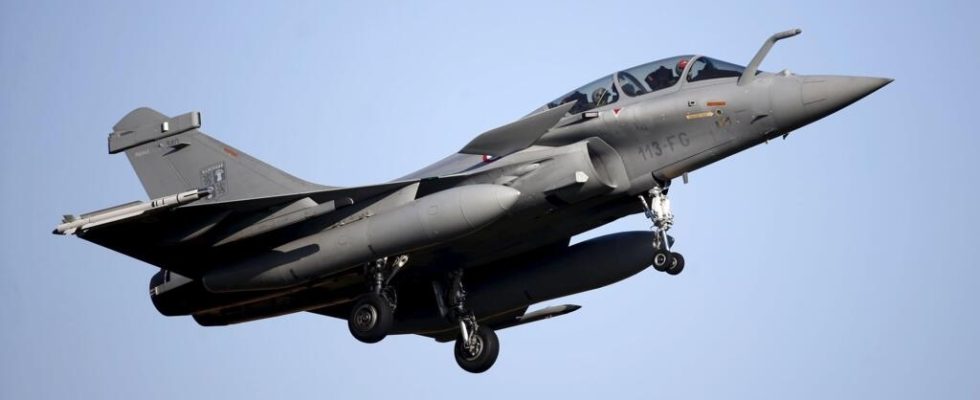The French draft military programming law (LPM) for the period 2024-2030 was presented to the Council of Ministers on April 4. Against the background of the return of war in Europe, it provides for unprecedented annual increases of 3 to 4 billion euros in the budget of the armies. However, the Ministry of the Armed Forces admits having prioritized certain armament programs to the detriment of others. This LPM will therefore not be synonymous with the massification of armies.
With an XXL budget of 413 billion euros over six years, the army hoped to obtain more tanks. So that will not be the case. Even the mid-tank renewal program currently underway will not be completed in 2030. The situation is the same in the Air Force where the transition to all Rafale is postponed to 2035.
So how is it that with so much money, the armies do not grow, wondered the members of the Defense Committee, on April 5 during the hearing at the National Assembly of the Minister for the Armed Forces. Sébastien Lecornu answers them : “ You have, in these credits, credits which will be consumed quickly for immediate effects. This is quite true for example for intelligence, it is quite true for certain ammunition purchases. And then you’re going to have payment credits for effects that you won’t see during that LPM. The most visible, the most obvious example is the future next-generation aircraft carrier. It’s construction and therefore won’t have immediate military effects. There are realities that relate to the life of the programs, it is the reality of the physical. It’s like that ! »
New Battlegrounds
The reality is also that a large part of the budget will be absorbed by the renovation of the vectors of nuclear deterrence. Credits largely also intended for intelligence. To stay in the race, it is necessary to finance very expensive technological leaps, tip Thomas Gassilloud, Chairman of the Defense Committee at the Assembly : “ We have to face new battles, in new spaces where we have to be present, notably cyber, exo-atmospheric space. And so it’s not just about gaining muscle, but also being present on new battlefields where tomorrow’s war is also being played out. Above all, we need means to analyze the gigantic information that arrives since we have more and more numerous and precise sensors and therefore we also need artificial intelligence to make these masses of data speak and to extract useful information from them for our political decisions. »
However, a threat hangs over these military credits : inflation. If the fear of seeing soaring prices cut into defense budgets is real, says MP Jean-Michel Jacques, rapporteur for this LPM, this risk has not been forgotten: “ Indeed, inflation is there. Now, if we look in the rear view mirrors, we can clearly see that other governments have faced inflation. I’m thinking of the 1950s and 1960s and we decided all the same in those periods to acquire nuclear weapons and that was done. What I have been able to observe in this military programming bill is that this inflation is taken into account up to 30 billion euros, which is virtuous. Of course, Parliament will have to remain vigilant. If inflation were to be higher, military budgets would have to be adjusted accordingly. »
With 413 billion euros, assures Sébastien Lecornu defending his budget, there is nothing too much in the future Military Programming Law, well aware of the fact that the distribution of these sums has not finished making people cringe. under the caps.
► Read also: In France, an “unprecedented” increase in the army budget in a tense context
